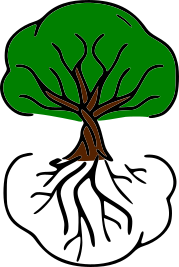In Literature Appetizer, Ben gives you just a taste of a book. Not meant to replace the full meal, this is meant to whet your appetite. Bon appetit!
On the last day of our ten day hike through the North Cascades, we decided to finish with a sunrise. Our last night on the trail we made sure to set everything up clearly so when we went to pack it in the morning, nothing would be misplaced.
Waking up at 3am, we walked slowly through the forest, up the mountain, and ascended just as the sun was rising. As much as this sounds like a fairy tale, we also could have been in significant danger. Yes, there are the usual risks such as dehydration or twisting an ankle, but we were also in mountain lion territory. Since cougars are corpuscular hunters, we were walking at the exact time they love to kill. To mitigate being a cat’s meal, we made sure to always be within eyesight of one another as well as talk (or sing) loudly.
That hike was in ‘the wilderness’ as defined by the 1964 Wilderness Act
“(c) A wilderness, in contract with those areas where [people] and [their] works dominate the landscape, is hereby recognized as an area where the earth and its community of life are untrammeled by [people], where [people themselves are visitors] who do not remain.”
One of the main problems with the philosophical mindset of environmentalism at that time is the idea that nature is separate from us. I have talked about this a few times before, but the book The Beast in the Garden by David Baron gives us a glimpse of how this mindset plays out.
In the book, the human population of Boulder, Colorado is booming. This requires houses to be made further and further into the mountains. Residents love how ‘wildlife’ is integrating into the city, even planting gardens to attract deer. Soon cougars followed into the suburban landscape.
Photo retrieved from the San Diego Zoo Wildlife Alliance
I often get bored of reading narratives involving humans. That’s just my personal preference. But when there are stories of people in this book, Baron does a great job connecting their thoughts and actions to how cougars became more and more comfortable around humans. Even back in the 1990’s, humans have such a dominating presence in our global ecosystem that all of our actions have consequences.
For me, the second chapter in this book is an excellent summary of the concept of Wilderness in America from first European Settlers to modern day.



